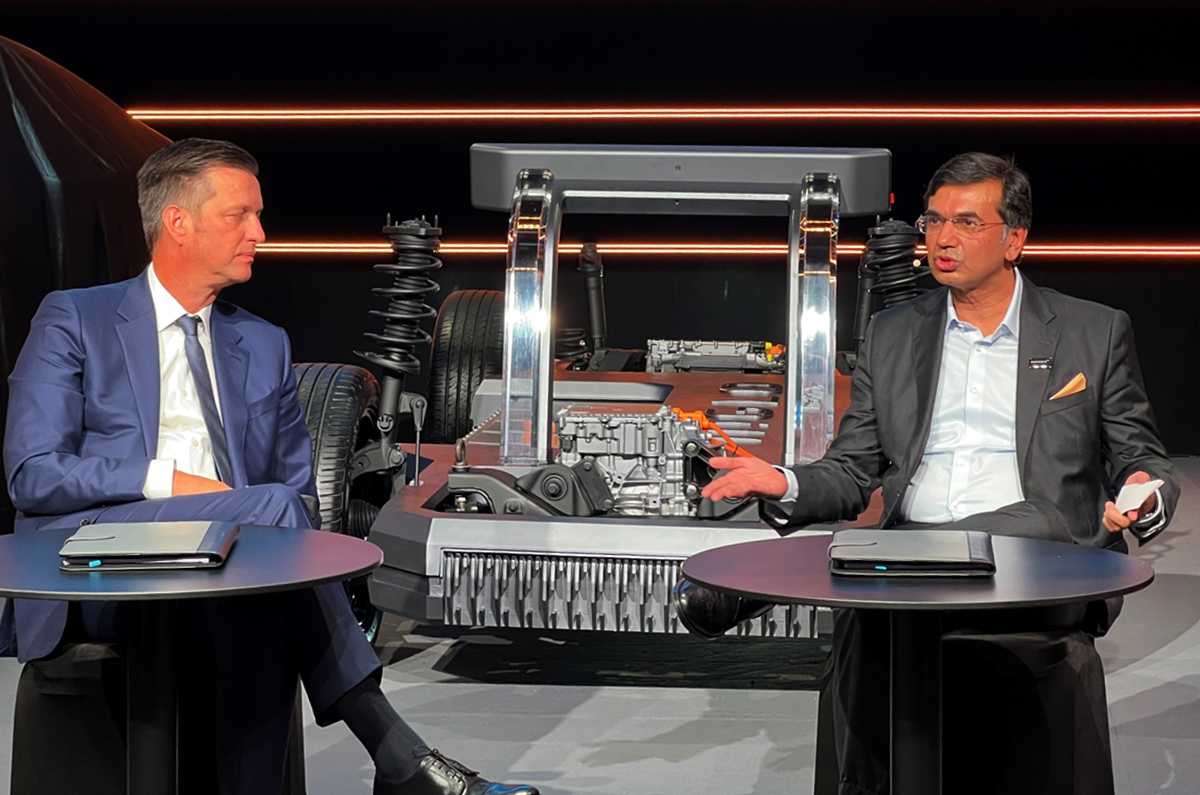
The two firms are also exploring joint projects that can include platform sharing and cell manufacturing.
Volkswagen and Mahindra have signed a term sheet to supply the former’s MEB architecture components to the Indian carmaker for use in its Inglo platform-based EVs. The term sheet was signed at an event where Mahindra unveiled its new electric platform and XUV.e and BE series of EVs.
The signing is a step further from the earlier inked exploratory agreement and should lead to a final supply agreement that the companies say will be in place by the end of 2022.
- VW and Mahindra aim to have a legally binding agreement by 2022-end
- Will also explore broader cooperation, including vehicle projects
Platform sharing
Besides the supply of EV components, Mahindra and Volkswagen are also exploring further cooperation, including platform sharing and cell manufacturing, which would also not be limited to only India. Speaking to the media, Thomas Schmall, Volkswagen Group Board member and CEO of Volkswagen Group Components, said, “If we come to a joint agreement to use Inglo technology, then it [the partnership] would not be limited to India.”
He did, however, also state, “Mahindra is one player in this space [EVs] and we are discussing with several partners as to who would be our partner for emerging markets.”
The statements allude to the fact that VW is open to exploring the use of Mahindra’s Inglo platform, though he made it clear that should the partnership deepen into joint platform projects then Skoda – who is in charge of India operations – would take the lead. “Skoda is responsible for India, so today we discuss components and modules, but if we come to joint platforms and top hats, then Skoda will define the plan ahead.”
Currently, both Skoda and VW will begin their EV journey in India with the import of higher-end EVs like Skoda Enyaq and the VW ID.4 SUVs. However, both brands eventually want to locally make EVs for India. It’s here that Mahindra’s new Inglo platform could be the ticket to the group’s entry into India’s lower-cost EV market. Last year, the company showcased its small ID.Life concept car built on the firm’s new modular electric platform – MEB – however, keeping costs low with ID.Life is also understood to be a challenge.
Cell Manufacturing
For now, Mahindra will import its batteries from VW, however, both partners are open and keen to explore local manufacturing as well. In response to a question from Autocar India whether the batteries would come from VW’s state-of-the-art plant in Salzgitter, Schmall said, “Let’s see.” He further stated that whether one or both partners would make the batteries locally is still undecided.
Setting up a cell manufacturing plant is a very costly affair – Schmall says it starts with USD 2 billion just to set up the plant. Thus, a careful assessment will be needed before the two partners embark on that route, however, both brands are keen given the volumes on offer. “We are talking with Mahindra about supply of components for more than 1 million cars until 2030, and this is only for Mahindra in India, and that’s a lot, about 3,00,000 per year. It begins to make sense if you are at 1,50,000 to 2,00,000 per year and so we are above that with Mahindra.”
